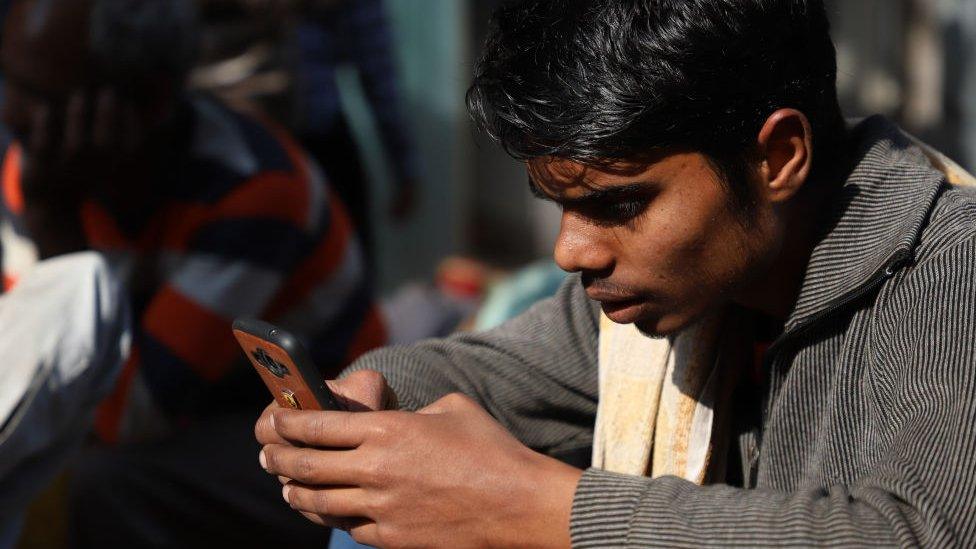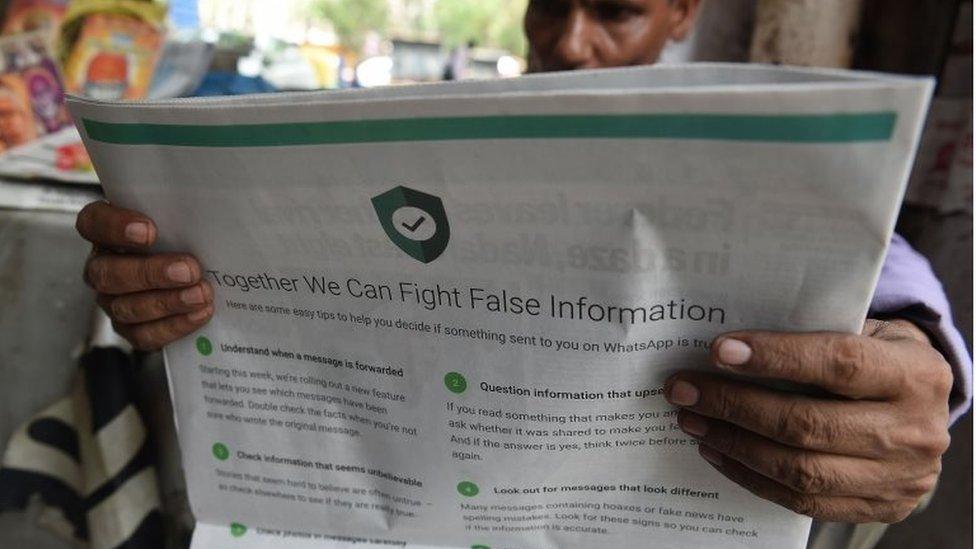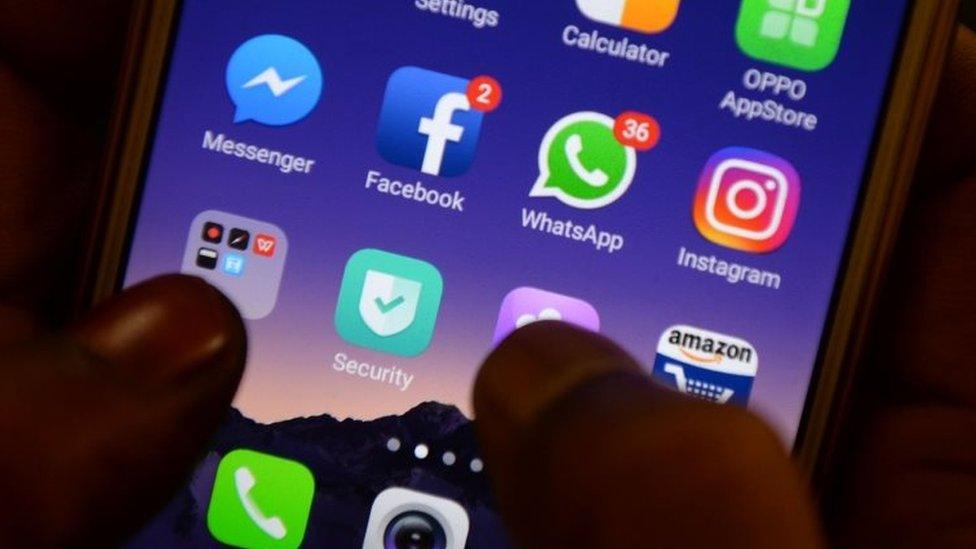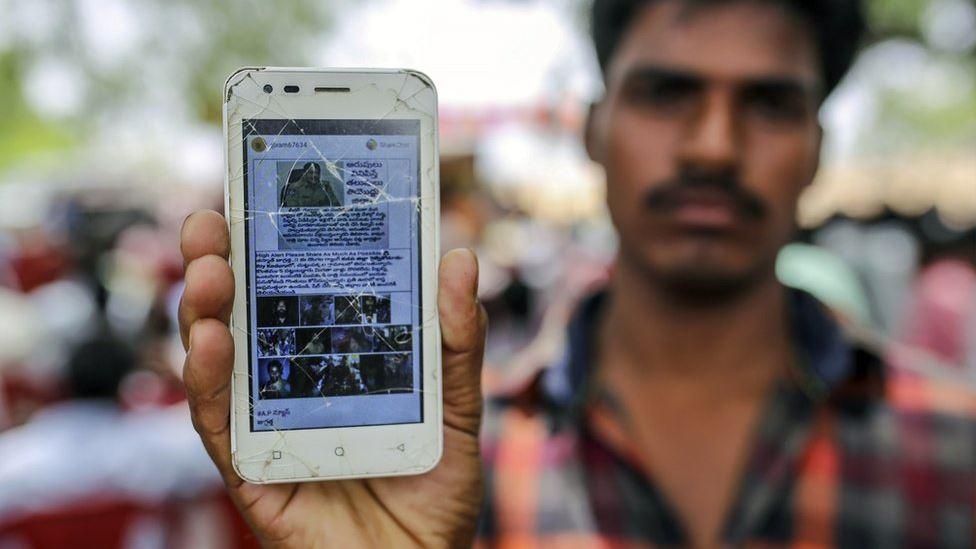India Lok Sabha election: Social media rules 'hard to enforce'
- Published

For the first time, India's politicians and political parties will have to ensure their social media accounts comply with official guidelines on "acceptable behaviour".
That means these accounts cannot carry political ads or any other content that could "influence" voters.
Critics say this is hard to enforce.
India will hold elections from 11 April to 19 May. The guidelines were effective from Sunday, when the dates were announced.
Only the official handles of political parties and politicians will be affected, said technology expert Prasanto K Roy.
"But the thing with social media is that there are so many layers of plausible deniability. There are thousands and thousands of accounts that are not 'officially' connected with political parties, but help carry their messages. All of this stuff will happen through them," he told the BBC.
The use of social media to spread misinformation and fake news has been a huge concern in India.
Doctored videos and information have been blamed for a spate of mob lynchings and even riots in India.
Political parties have frequently accused each other of intentionally spreading fake news intended to cause social unrest and given them political points.
What is expected to happen?
In terms of what social media companies are expected to do, experts say they will potentially have to take down offending content much faster than usual, bypassing the standard operating procedure for doing so.
Election commissioner Sunil Arora said on Sunday that representatives from his office would be flagging content that violated guidelines, known as the model code of conduct, and that technology companies - he named Google, Facebook, WhatsApp and Twitter - would be expected to take it down.

He added that these companies had also given "written undertakings" to monitor and take action against offending posts.
"In cases where someone from the election commission is actually flagging content to them, the process will be straightforward. The problem arises when companies are expected to take these decisions themselves," Mr Roy said, adding that they would then be opened up to allegations of bias.
What are social media companies doing?
Last month, Twitter CEO Jack Dorsey was summoned before an Indian parliamentary panel to get his views on "safeguarding citizens' rights on social/online news media platforms".
Pro-government TV networks reported that the MPs had actually summoned Twitter officials over "allegations of bias" against right-wing accounts.
Mr Dorsey did not appear before the panel, but Colin Crowell, who leads public policy, governance and corporate philanthropy efforts at the network, did.
The digital epidemic killing Indians
"To be clear, we do not review, prioritise or enforce our policies on the basis of political ideology. Every tweet and every account is treated impartially. We apply our policies fairly and judiciously for all," he told the BBC at the time.
WhatsApp, which has 200 million users in India, recently released a white paper in which it spelled out several measures it was taking to reduce what it called the "abuse" of the platform by politicians and political parties.
"We have seen a number of parties attempt to use WhatsApp in ways that it was not intended, and our firm message to them is that using it in that way will result in bans of our service," Carl Woog, head of communications for WhatsApp, told reporters at a briefing last month.
- Published20 July 2018

- Published12 November 2018
